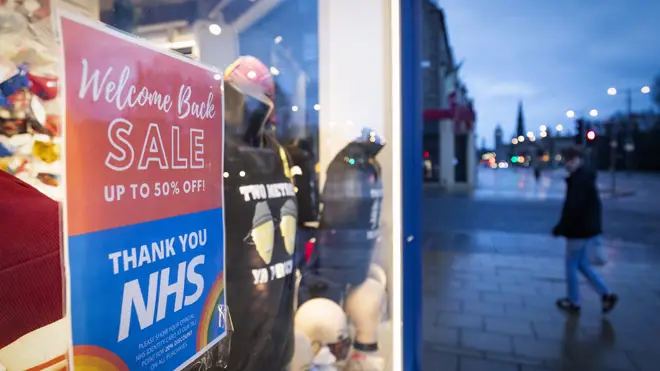
Natasha Devon 6pm - 9pm
19 January 2021, 14:38 | Updated: 19 January 2021, 15:10

Scotland's lockdown including the strict "stay at home" requirement will remain in place until at least the middle of February, Nicola Sturgeon said today.
Schools in Scotland will also remain closed for the majority of pupils.
Scotland's First Minister said: "The Cabinet decided this morning to maintain the restrictions which are currently in place.
"That means that the lockdown restrictions - including the strict stay-at-home requirement - will remain in place across mainland Scotland and some island communities until at least the middle of February."
She urged Scots to continue to be "cautious" about coronavirus, despite declines in the number of new cases.
"We need to see these trends continue, to be more certain that this phase of the epidemic is now on a downward trajectory.

UK has highest Covid death rate per million people in world over past seven days
"And second, we need to be realistic that any improvement we are seeing is down, at this stage, to the fact that we are staying at home and reducing our interactions.
"Any relaxation of lockdown while case numbers, even though they might be declining, nevertheless remain very high, could quickly send the situation into reverse."
She also told MSPs today that eighty percent of care home residents in Scotland have received their first dose of the coronavirus vaccine.
Ms Sturgeon said a number of local authorities had vaccinated all care home residents with the first dose.
She added that 70% of care home and other heath and care staff had been given their first jab.
Three million people in Scotland, the majority of the adult population, will have received their first dose of the vaccine by early May, Ms Sturgeon said.
"That means that in around three months' time, around three million people in total will have received at least the first dose of the vaccine - this is, of course, the majority of the adult population and includes everyone over the age of 50, and many younger people with an underlying health condition," she said.
"The rest of the adult population will follow after that just as quickly as supplies allow."